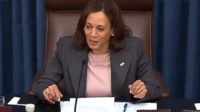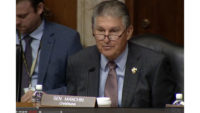The most comprehensive update to U.S. energy law in more than a decade has stalled in the Senate because of a squabble with some members of the Environment and Public Works Committee.
The bill, titled the Energy Innovation Act, is the culmination of a year’s worth of hearings, markups and meetings led by Energy and Natural Resources Committee Chair Lisa Murkowski (R-Alaska), and the panel’s top Democrat, Joe Manchin (W.Va.). The measure failed on March 9 to win enough votes to end debate.
The key sticking point appears to be a bipartisan amendment to allow states to enforce regulations to phase down hydrofluorocarbons, which are used in refrigerants and cooling systems and are known to contribute significantly to greenhouse gas emissions.
Many industry and environmental groups support the overall bill, including the American Council of Engineering Companies, Edison Electric Institute and the Natural Resources Defense Council.
The package includes provisions from more than 50 bills that the Senate energy committee had cleared. It would increase incentives and investment in energy efficiency in buildings, geothermal power projects and emissions-cutting technologies in the industrial sector. It also would provide more funding for advanced nuclear as well as carbon capture and storage demonstration projects.
After the vote, Murkowski said that she was “incredulous” that the bill had been held up, not because of its substance, but an unrelated procedural matter. She said, “We will regroup and look for a path forward, but finding one will require members to be more reasonable and accommodating than they have been in the last week, and certainly more so than they were today.”
Manchin added, “We will continue to put in the work to get this bill across the finish line.” But that work will likely be delayed, at least for a few weeks, as the Senate grapples with legislation to address the new coronavirus and a volatile stock market





Post a comment to this article
Report Abusive Comment